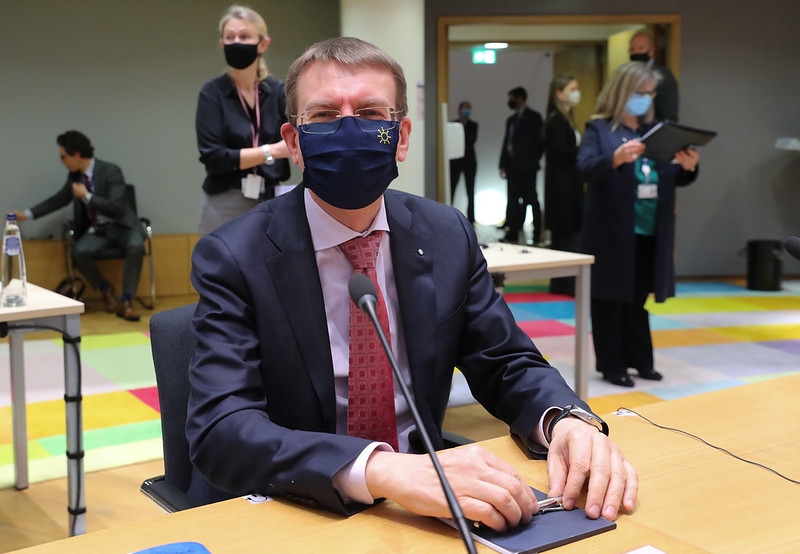The European Union (EU) needs a firm, principles-based and united position in response to the deteriorating human rights situation and reprisals against opposition politicians, independent media and civil society in Russia, said the Latvian Minister of Foreign Affairs, Edgars Rinkēvičs, at a meeting of the Foreign Affairs Council in Brussels.
On 22 February 2021, the EU High Representative for Foreign Affairs and Security Policy, Josep Borrell, informed EU Foreign Ministers about his visit to Russia on 4-6 February 2021. His presentation was followed by a discussion on the human rights situation in Russia and latest developments in the case of an opposition politician, Alexei Navalny. The Ministers reached a political agreement to begin working on new restrictive measures against Russia.
In a discussion on the relationship between the EU and Russia, Edgars Rinkēvičs indicated the need for expanding the EU’s restrictive measures against Russia over the sentencing of Alexei Navalny, the persecution of his associates and a violent crackdown on protesters. He called for applying the EU’s new Global Human Rights Sanctions Regime against Russian officials responsible for the persecution of Alexei Navalny and other activists.
The sentencing of Navalny is yet another proof of a systemic action by Russia’s power structures to oppress the regime’s political opponents, said Edgars Rinkēvičs. Disregard for democratic principles and international law in Russia must not go unnoticed, the Minister underlined. He expressed confidence that besides introduction of new restrictive measures it is vital that the EU continue providing support for the members of Russia’s civil society, journalists and human rights advocates. At various international organisations, the EU should more actively raise the issue of the deterioration of the human rights situation in Russia, the Minister added.





